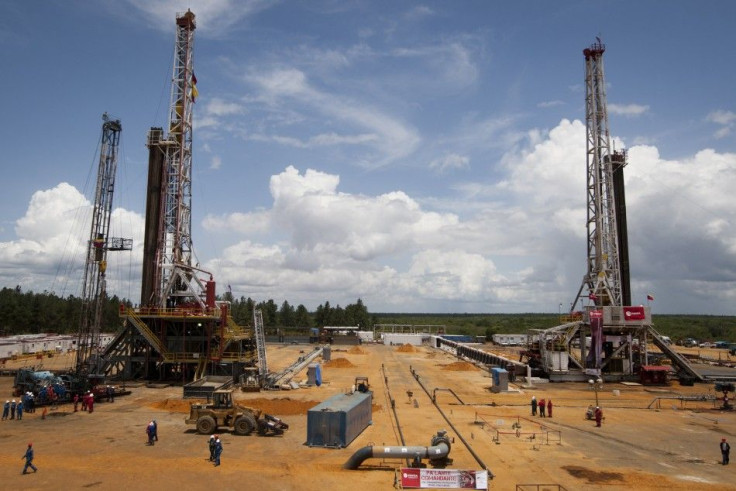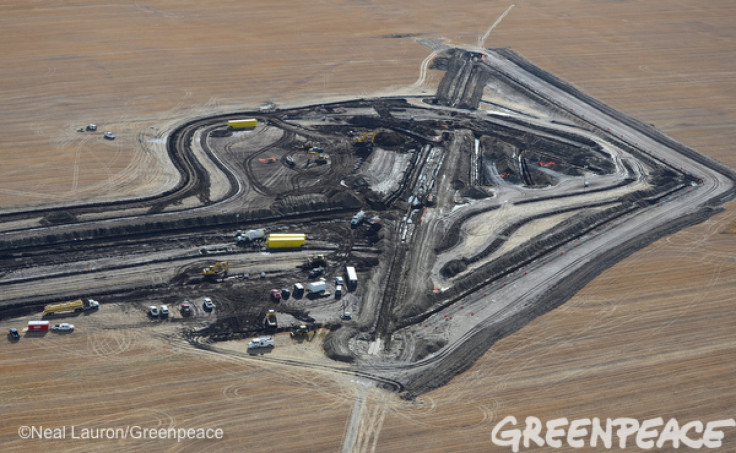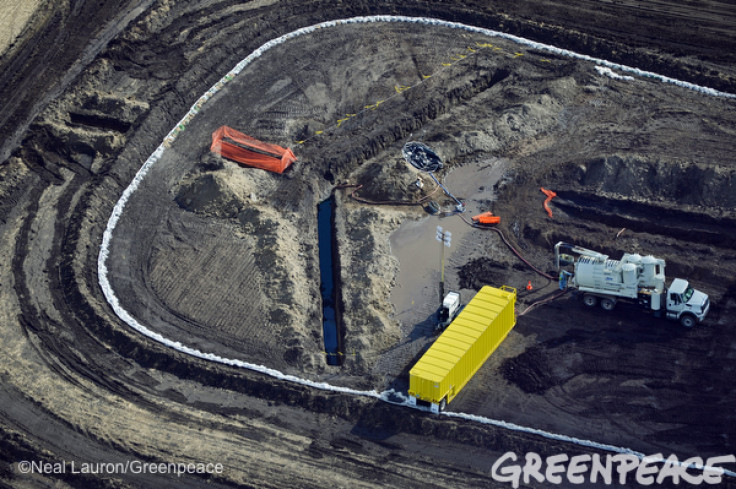North Dakota Oil Spill Raises Questions Of Transparency And Regulation On State Level: Does North Dakota Need An Ethics Committee? [Photos]

North Dakota is in the middle of an epic oil boom, surpassing Alaska as the second biggest U.S. oil producer behind Texas, but a recent oil spill has raised questions over state transparency and regulatory oversight of the oil industry.
In late September, 20,000 barrels of crude oil from a pipeline in Tioga, in the state's northwest, spewed over seven acres, creating one of the biggest oil spills in the state’s history and prompting outcry from residents after it took 11 days to notify the public about the spill.
The North Dakota Health Department was notified on Sept. 29, after a farmer discovered oil bubbling from the ground. The agency said it did not inform the public sooner because it thought it was a small-scale spill; this came only after the Associated Press asked about the department about it.
Officials said the pipeline is owned and operated by Tesoro Corporation (NYSE:TSO) and that the spill did not contaminate any groundwater nor affect any wildlife.

Former state representative and Democratic gubernatorial candidate Ryan Taylor said he believes the state needs to do a better job on regulation and transparency.
One of Taylor’s main campaign promises in 2012 was to put in place more oversight through a state ethics commission. During his campaign Taylor refused to accept contributions from energy companies and called on the GOP incumbent, Gov. Jack Dalrymple, to do the same. Taylor and his supporters criticize campaign financing provided by energy companies and their employees.
Taylor said the fact that Dalrymple, who won the election, received contributions from the energy industry and is chairman of the state’s industrial commission, which oversees the oil and gas divisions, creates a problem. He said both situations could lead to ethical questions and conflict of interest.
“It really isn’t a conflict of interest,” said Amanda Godfread, a campaign spokeswoman for Dalrymple, referring to both campaign contributions and to Dalrymple’s role as head of the commission. “The commission does not make rulings of any kind.”

Permits given for drilling are governed by state laws, and the industrial commission verifies that drilling requirements already in place are being met in order to receive a permit, Godfread said. In 2011, Taylor served as the Democratic minority leader in the Legislature and tried unsuccessfully to pass a bill creating a state ethics commission that would oversee conflicts of interest.
Forty-one states have such commissions; North Dakota is one of nine states that doesn’t. John Contino, executive director of Pennsylvania’s ethics commission, said he has seen cases of potential conflict of interest between government and energy companies in his state. But, he said, generally speaking many of these conflicts occur on local levels since there has been an increase in drilling in recent years.
“One of the benefits of an independent ethics committee,” Contino said, “is that we can offer guidance and advice in these potential conflicts.”
So what makes North Dakota different?
Godfread said transparency operates in government at all levels and that North Dakota has among the strongest open record laws in the country. “To say we would somehow be more transparent as the result of a committee, which would actually add a layer of government, is very questionable,” Godfread said.
Because of North Dakota’s small population of about 680,000, there is what Godfread called a “tight-knit sense of community” between politicians and their constituents throughout the state. There is a part-time Legislature, and elected legislators are only in session for 80 days every two years.
“Our state legislators actually live and work in the communities they serve alongside those who have voted them into office,” Godfread said.
“Because of these factors, North Dakotans can have a much closer relationship to their government and to the people they elect,” she said.
State Rep. Shirley Meyer, a Democrat from a district where lots of the drilling takes place, expressed the same sentiment. “We are a citizen Legislature. We all have our own jobs, we farm and ranch for livings.”
With the state’s small population, elected officials are directly accountable to their “neighbors,” she said. “They know who you are, they know your telephone number and it creates a system where you don’t really do you anything you shouldn’t do,” Meyer said.
© Copyright IBTimes 2024. All rights reserved.












